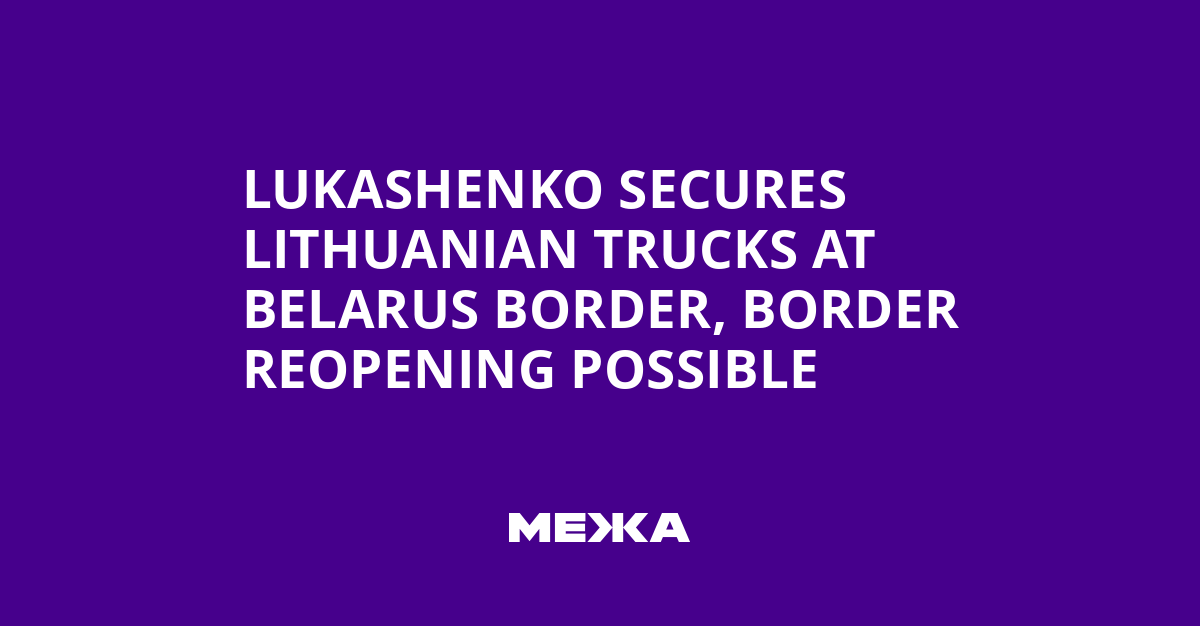The Belarusian authoritarian leader Alexander Lukashenko said that by his order all Lithuanian trucks currently in Belarus had been gathered at border checkpoints and placed under guard. “I want to say: we have long been ready to open the border. We did not close it. Within a few hours it could resume operations on our side. The border guards are generally ready for this.”, Lukashenko said at a meeting on November 10, BelTA reports.
Lukashenko added that the Lithuanian side had appealed to have their vehicles returned, which were stranded on the Belarusian side after the border closure. He noted that he did not need a briefing and that “as soon as they are ready to evacuate, they will reach an agreement with our side… We actually have no customs officers at the checkpoint, no border guards. They closed it. They closed it. Our services have been redeployed to other areas – that was my decision.”
“I didn’t even listen to that briefing. I said: okay, as soon as they are ready to evacuate, they will reach an agreement with our side… We actually have no customs officers at the checkpoint, no border guards. They closed it – closed it. Our services have been redeployed to other areas – that was my decision.”
– Alexander Lukashenko
On November 9, by order of Lukashenko and under the leadership of the State Secretary of the Security Council, law enforcement agencies gathered all Lithuanian vehicles at the border checkpoints and placed them under guard. “The cars are gathered, they are under guard. Those guarding them asked, it seems, for 120 euros per day. They paid for the security. How many days they will be there – multiply by 120 euros – pay, take away the vehicles with their cargo. If this is not done in the next few days, we will take measures in accordance with our laws, as the MFA stated. Up to confiscation of these vehicles. They cannot be left idle on the roads – 1,100 or 1,200 huge trucks.”, Lukashenko said.
According to Lukashenko, the drivers will be brought directly to the border checkpoint, and Lithuanian consignees must contact authorities in Vilnius to resolve these issues. According to Lukashenko, there are 1,100 or 1,500 drivers.
“If they are going to evacuate, let them evacuate. This is not our concern. And in general, we probably do not transport much across this border due to sanctions. We will discuss everything else soon during talks with the delegation of the United States of America. I feel that this could not have happened without them,” Lukashenko added.
Context and Consequences
In the context of the events of November 9, the U.S. leadership announced it would nominate John Koula for the position of special envoy to Belarus. Koula had previously visited the country and met with Lukashenko; human rights advocates recall cases where people were dismissed from posts for political reasons.
After Lithuania closed the border crossings with Belarus in October, more than 1,000 Lithuanian trucks remained on the Belarusian side. The Belarusian Foreign Ministry stated on November 6 that Minsk refused Vilnius’ request to return the cargo and urged Lithuania to revoke its decision to close the border.
